A Reflection in Conjunction with RZS-CASIS’ 10th Anniversary
By Muhammad Hasanul Arifin
M.Phil at RZS-CASIS (2013-2016) & Ph.D. Student (2019 – )
My formative years at CASIS (now RZS-CASIS) between 2013 and 2019 can be summed up with one word: adventure. While many would regard their intellectual journeys and sojourn here as an adventure in a metaphorical sense, when I use the word, I actually mean it both literally and metaphorically, because it involved a weekly journey traversing at least 660 km!
My adventure started with an email in 2012 by the then, director and founder of CASIS, Prof. Dr. Wan Mohd Nor Wan Daud, who told me about the fantastic developments culminating in the establishment of CASIS and inviting me to study there full-time. Prior to 2012, Prof. Wan had been conducting regular workshops for the teachers at Institut Zuhri in Singapore of which I was a guest participant due to the kindness of its director, Dr. Abdullah Othman, although I was not part of its teaching fraternity yet at that point of time. Through Prof. Wan, the seeds of this adventure were sown and further germinated with visits from Prof. Al-Attas and other scholars like Dr. Khalif Muammar, Dr. Farid Shahran, Dr. Zaidi Ismail, Dr Sani Badron, Dr. Adi Setia, and Dr. Hilmi bin Ramli. My friends and I would travel north to visit these scholars whenever an opportunity arose. Also within this period, Encik Roslan Jelani mentored our study group closely and even completed a reading of Risalah Untuk Kaum Muslimin with us. These arrangements, while enriching, were not satiating enough for my personal development; so while Prof. Wan’s email came at an opportune time, there were several obstacles to this adventure.
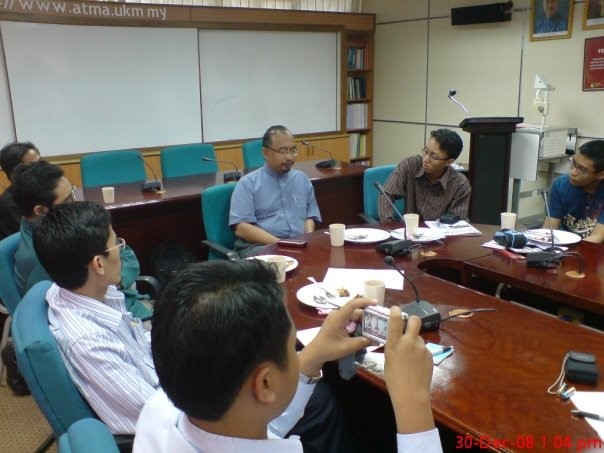
I shared with Prof. Wan about my circumstances at that point of time— I was serving a bond with the Ministry of Education in Singapore and so I could not leave my full-time job to study full time. He told me not to worry because there were other interested students like myself, and because of that CASIS was willing to provide classes during the weekends to cater to our needs. Additionally, Prof. Zainiy Uthman also explained to us that in Islam, there is no such thing as studying part-time; although it may seem that we would be studying “part-time” due to the classes being conducted during the weekends, in essence it would still be considered “full-time” if we set sincere intentions in pursuing knowledge and perceive our weekday jobs as merely the means and instruments for us to fulfill higher objectives of our existence: learning. With these clarifications, I jumped at the opportunity knowing deep in my heart that such a chance might not arise in the future. I enrolled myself in Feb 2013 and then found myself to be the first Singaporean student to do so.
Now that the preparations for this adventure had been set, another huge obstacle pertaining to journeying for this adventure presented itself– a 660 km journey that must be traversed weekly. For one semester I experimented with traveling via the metal birds in the sky (i.e. air travel). As such, on certain days, I would be scouring through airfare websites comparing prices to check for the most cost-effective and time-appropriate flight to be on. After missing several flights and suffering delays on other occasions, I turned to buses instead, which proved to be more cost-effective although less predictable than flights because they were highly dependent on road conditions. However, the night buses were more reliable because the highways to Kuala Lumpur would be clearer. Therefore, from that juncture in time onwards, I would depart from my home on Friday night on a night bus which would take me to Berjaya Times Square in the wee hours of the morning, get a few hours of rest at a capsule hotel nearby (whose beds literally looked like coffins!), and then hopped on a taxi to class on Saturday morning. If there were classes on Sunday, I would spend the Saturday night at Scholars Inn at UTM, a name befitting for a sojourn of such nature. It was only sometime in the third semester when I was joined by more Singaporean students (Alaniah, Hazlami, and Gokhan) that we decided to carpool with Alaniah to Kuala Lumpur and back. For this, I am eternally indebted to sister Alaniah, who managed to reduce the duration of the journey which would take about 4 hours by flight and 5–8 hours by bus to 3.5 hours— a superhuman feat performed by an expert race driver!
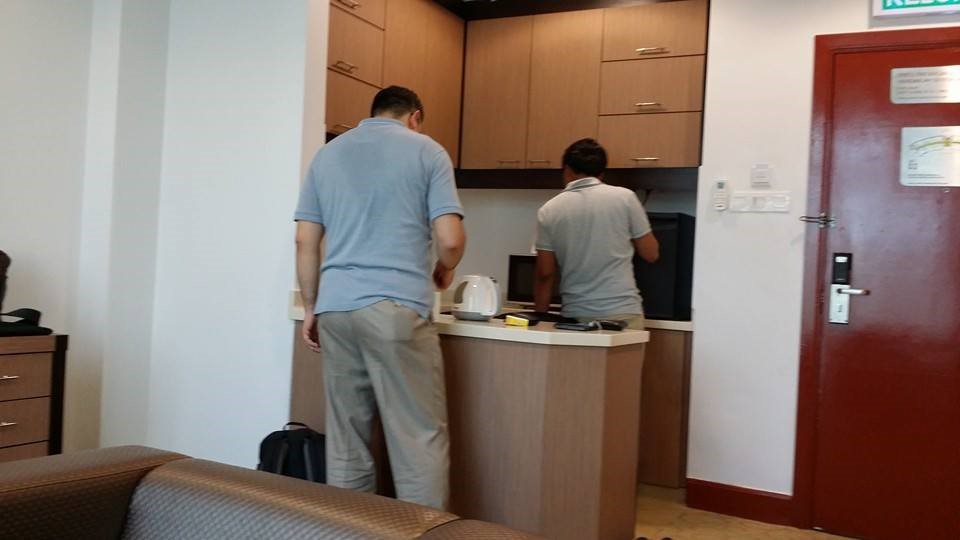
What kept us going for another three semesters of traveling in this manner was the adventure itself— the intellectual life at CASIS. The breadth and depth of discussion was astounding. In Prof. Wan’s classes on Worldviews and Epistemic Frameworks as well as on Decolonisation and Islamisation in Contemporary Knowledge, we discussed the worldview of Islam vis-à-vis the worldviews of other religions and civilizations and grappled with contemporary decolonization theories and global efforts vis-à-vis Prof. Al-Attas’ Islamisation. In Dr. Khalif’s class on the Shari’ah, he included a discussion of the Magna Carta as well as a discussion of the Orientalist Joseph Schacht’s legal theory, whereas in Dr. Syamsuddin Arif’s class on Hadith we scoured through various traditional texts and discussed them in light of the Orientalist Goldziher’s findings. I had the fortune of attending classes on Islam and the Philosophy of Science conducted by both Dr. Adi and Prof. Zainiy. While Dr. Adi presented Islamic philosophy of science in light of Thomas Kuhn’s Structure of Scientific Revolutions as well as the science of permaculture, Prof. Zainiy discussed Islamic philosophy of science vis-à-vis Aristotelian and contemporary physics. Even the Arabic Language classes were mind-blowing— Dr. Suleiman Boayo, Dr. Syamsuddin, and Dr. Wan Suhaimi Wan Abdullah often discussed grammar and morphology vis-à-vis deeper issues of the philosophy of language, and always linked them to how certain Arabic terms were used in traditional sources such as in the science of Tasawwuf. To top it off, Prof. Zainiy even brought along a replica of the Terengganu Inscription for discussion in his Research Methodology class, and Prof. Tatiana Denisova would showcase exciting images of manuscripts and historical artifacts in her History modules. In fact, we even watched Mongol: The Rise of Genghis Khan in her class as part of our discussion on the Mongol period of Islamic history!
In essence, each teacher provided a space for meaningful civilizational and scientific discourse on Islam— and by “meaningful” I mean the recognition and acknowledgment of the place of a thing vis-à-vis other things in a system. The “system” upon which ideas are discussed and debated is none other than the worldview of Islam as clarified and understood by Prof. Al-Attas. In other words, there is always a subtle unity enmeshed in the multiplicity of themes discussed and taught by the teachers in CASIS corresponding to the unity in multiplicity of Islam’s vision of truth and reality, demonstrated through a discussion of common themes throughout all modules such as the nature of God, the nature of man and psychology of the human soul, the nature of the universe, of human freedom, destiny, and happiness, as well as the concepts of religion, knowledge, and science. This unity of knowledge and integrity of themes is the distinguishing feature that sets CASIS apart from other institutions of higher education— institutions that have abandoned the tradition of imparting knowledge of universal significance, instead preferring to unload a glut of information that perplexes the soul of its students and thereby leaving them with no sense of purpose and mission, particularly that which pertains to their meaning and proper place in the world.
The dedication of the CASIS teaching and administrative staff to the acquisition and dissemination of knowledge is also remarkable. My supervisor, Dr. Wan Suhaimi assisted me in reading and checking the entirety of my thesis line by line through different modes of communication including phone calls; which he is willing to do for all students so long as they are proactive and committed to their studies. He also organizes monthly online symposiums where all the students under his tutelage can present their findings and receive feedback, especially those due to present in upcoming Graduate Seminars. Puan Rashidah, the Director’s Personal Assistant (2012-2019) is another extraordinary example of remarkable administrative staff, who particularly empathizes with the difficulties students may face to correctly format their thesis submissions (especially in my case where any error in formatting is another 660km journey). She generously assisted me in editing my manuscript in line with UTM submission requirements through phone. Sister Hajar Almahdaly has also been remarkably helpful in the administrative aspects of our sojourn here, giving useful reminders and advice on how to navigate the bureaucracy. Without her, red tape becomes bureau-crazy!
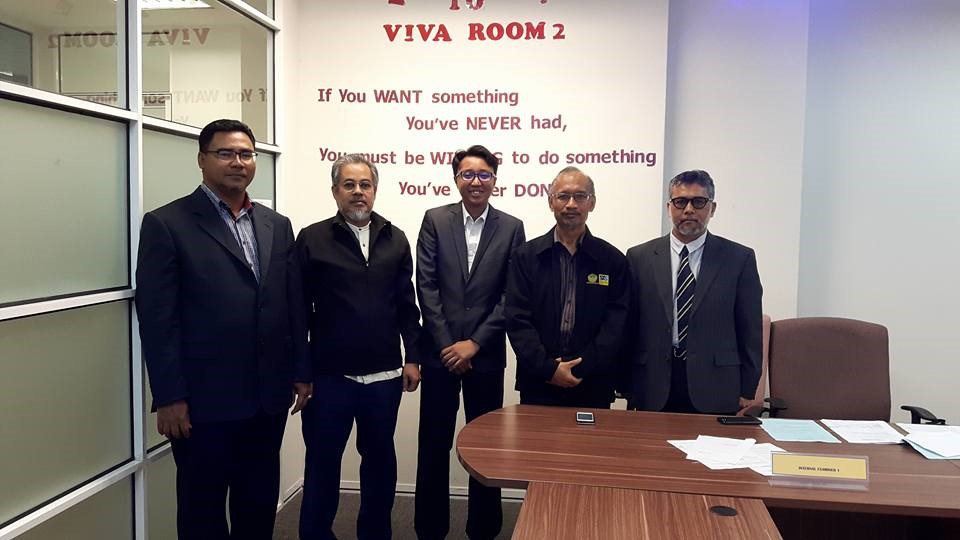
The kindness of the CASIS teachers and staff extends beyond teaching and learning. In preparing my manuscript for publishing, Prof. Zainiy, Dr. Khalif, Dr. Wan Suhaimi, and especially Dr. Wan Azhar looked through my manuscript and gave insightful suggestions on how to improve it, even though at that time I was no longer officially a part of the CASIS fraternity, having graduated from the Masters programme. Beyond academic matters, I recall an unfortunate incident involving a traffic accident at a slip road opposite the Petronas Tower where Alaniah’s car was hit from behind by an unsuspecting driver on our way back to Singapore. The driver took advantage of the inability for a foreign insurance company to pay for the claims of another and offered a meagre amount of money to cover the repairs. When Prof. Zainiy heard of the matter, he sought to collect funds through the CASIS Student Society to help compensate the repairs fully, purely out of kindness. Furthermore, when my mother passed away amid my studies, Prof. Wan was one of the first to text and console me, and that text became my source of strength to persevere through the hardships of this adventure. Prof. Wan even offered his office for me to sleep in instead of a hotel to save costs although this never materialized out of my respect to him!
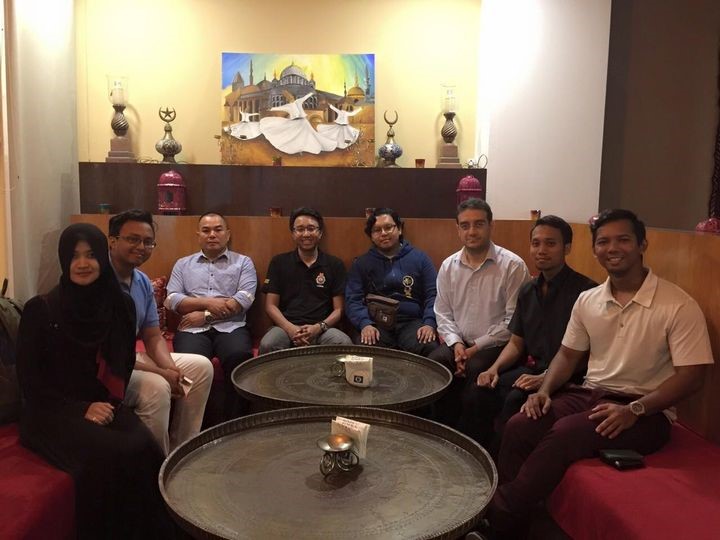
Companionship is paramount in facing the toils of this adventure, and CASIS is never bereft of any. For every module, there will be a student appointed as an assistant to the teacher, to assist in disseminating information, provide guidance and tips for assignments, and even help to negotiate assignment deadlines on behalf of other students. Before and after classes, there will always be opportunities for students to meet over food and obligatory coffee to discuss research materials. Sometimes the discussions are more structured in the form of discussion sessions that are included in the academic timetable. At other times, they manifest in the form of informal gatherings on the sofas in the CASIS lobby and in the student lounge. Some classmates were particularly helpful and kind enough to offer their own houses for me to stay the night and would even send me to the bus terminal or the airport on my journey home. Those rides to the bus terminal or airport were, of course, always accompanied by meaningful discussions. This camaraderie would be showcased to the public during the monthly Saturday Night Lectures with Prof. Al-Attas where every student would play a role, however small, in the organizing of the much-anticipated intellectual banquet, be it as an usherer, a bookseller, logistics helper, or liaison officer. Those without official roles would be told to mingle with guests in the audience and engage in small talk to make them comfortable. This often happened at the end of a long marathon of classes on Saturday starting at 8 am in the morning, yet amidst the fatigue of remaining on campus past 11 pm there were always smiles of joy and satisfaction after listening to Prof. Al-Attas and in the subsequent series, Prof. Wan. After which, the journey home from Kuala Lumpur to Singapore would be filled with robust discussions and sometimes heated debates on profound matters with accompanying Singaporean colleagues.
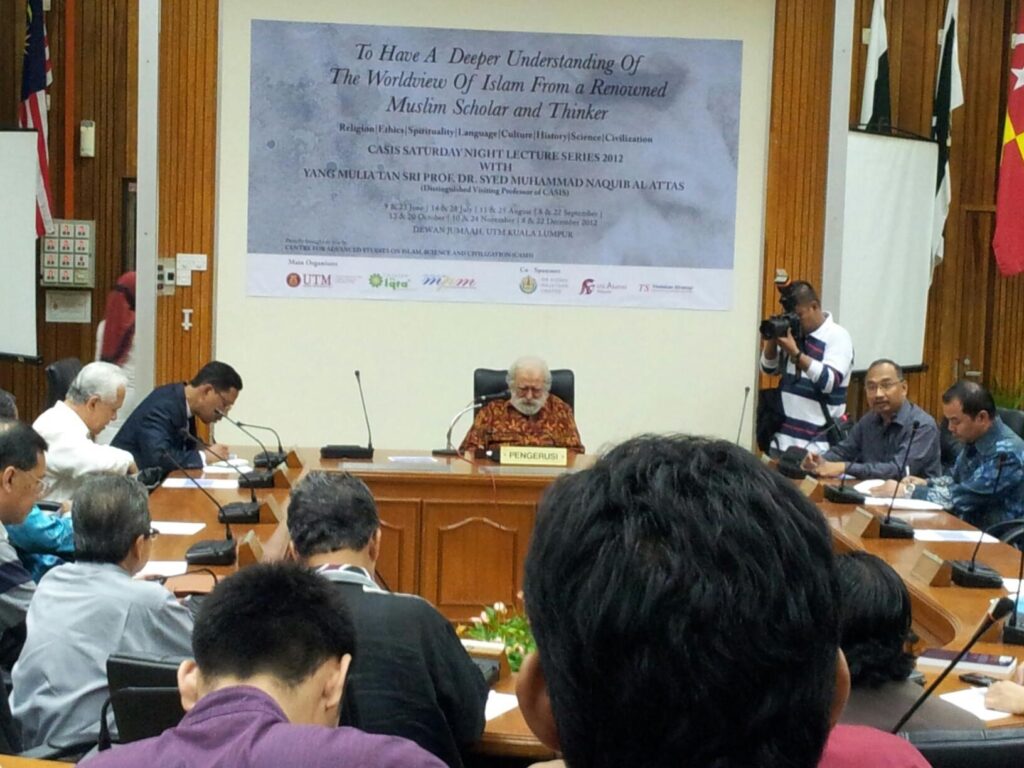
For almost two years of this pandemic which incidentally occurred during the early phase of a new PhD journey, my adventure has moved online. The experience is less poignant with the absence of the bitter-sweet hardships of traveling. Technology has made it more convenient to attend classes, but without the hardships and concomitant events surrounding it, the learning experience has become less memorable, although this does not make it any less meaningful. In fact, it allows me to better understand Imam Al-Ghazali’s advice for students to travel for the sake of knowledge:
“The second responsibility of the student is to diminish his ties with mundane occupations and distance himself from family and homeland.”
Sometimes when I ponder this, perhaps this adventure is not really an adventure being away from home, but rather an adventure returning home.
I miss being home.
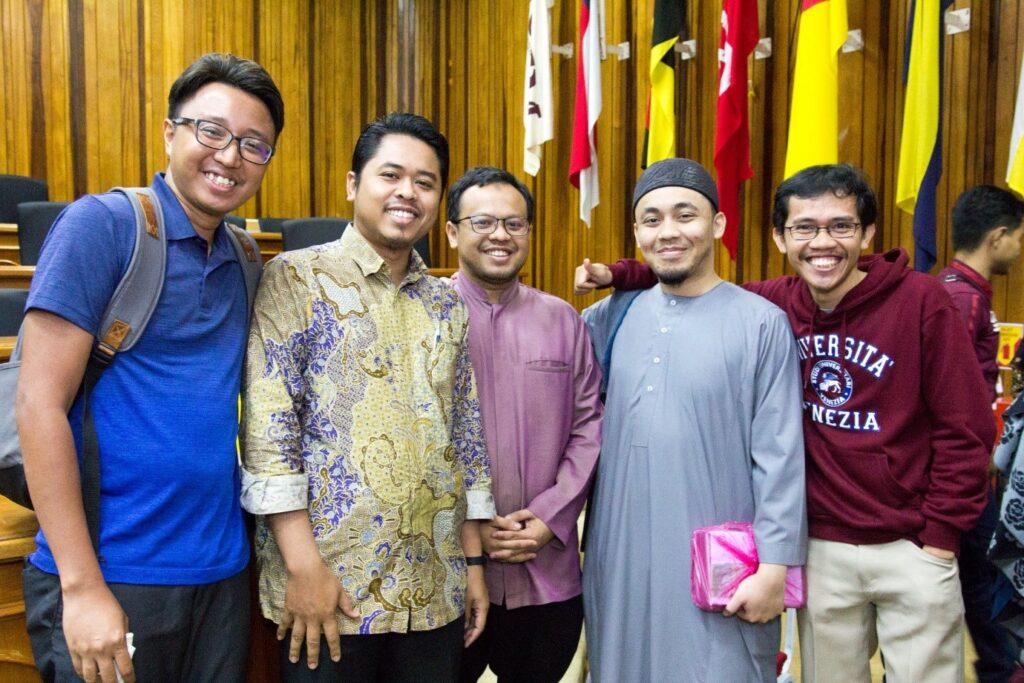
Muhammad Hasanul Arifin completed his M.Phil at CASIS in 2016. He did his Post Degree Diploma in Education at the National Education Institute under the Nanyang in 2013 after acquiring his degree in 2011 at the National University Singapore (NUS) in Bioengineering and Technology Management. He is now teaching Mathematics and Science as well as a lecturer at the Institut Zuhri and Andalus. He is currently doing his Phd at RZS-CASIS.

